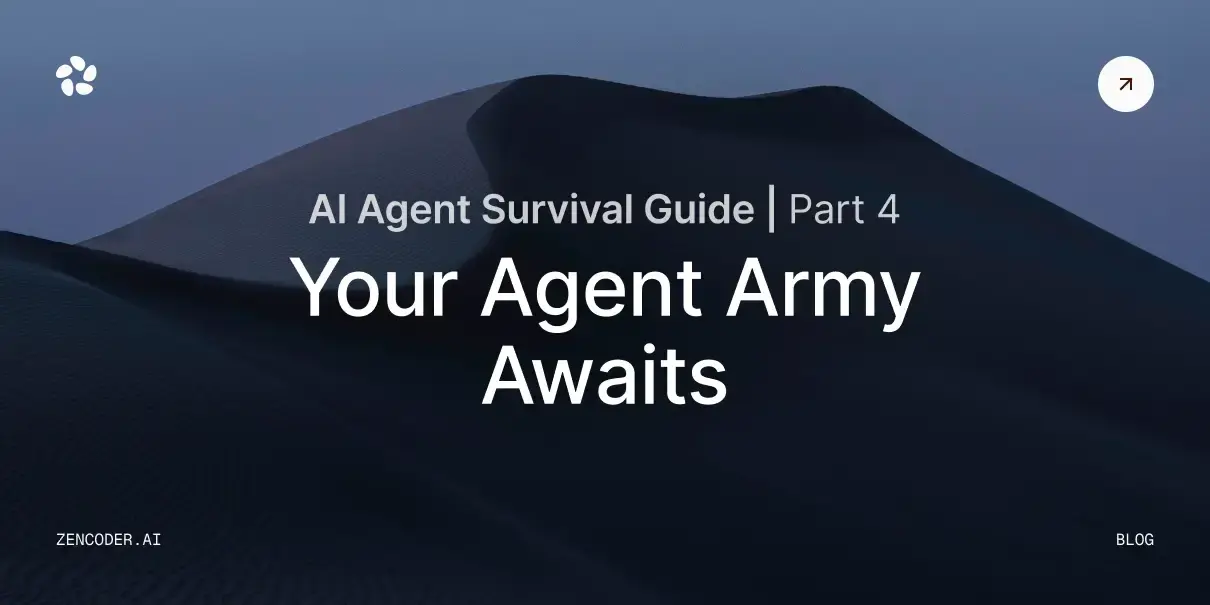In the fast-paced world of software development, a quiet revolution is underway. AI programming assistants are transforming the way we write code, offering support that goes far beyond simple autocomplete functions. These digital aids are becoming increasingly sophisticated, adapting to the intricacies of various programming languages with remarkable agility and intelligence.
The coding landscape has always been diverse, with each language offering its own strengths, quirks, and philosophies. Python emphasizes readability and simplicity. JavaScript thrives in its asynchronous, event-driven environment. Rust prioritizes memory safety and performance. C++ offers unparalleled control and efficiency. In this multilingual coding world, developers often find themselves switching between languages, each with its own syntax, best practices, and ecosystem.
Enter AI programming assistants. These aren't your run-of-the-mill code editors with basic syntax highlighting. We're talking about advanced AI tools that understand the nuances of each language, adapting their assistance to provide tailored, context-aware support.
The Rise of Language-Specific AI Tools
While general-purpose AI can certainly assist with coding tasks, it's the language-specific tools that are truly changing the game. These specialized assistants understand not just the syntax, but the very essence of each programming language – its idioms, best practices, and unique characteristics.
Consider the difference between writing Python and C++. In Python, you might prioritize readability and use duck typing. In C++, you're more concerned with memory management and type safety. A proficient AI assistant grasps these fundamental differences and uses them to provide more relevant, context-aware support.
But how exactly do these AI programming assistants adapt to different languages? Let's dive into the key areas where they shine:
Code Completion: The Art of Prediction
Code completion has evolved far beyond simply finishing variable names or function calls. Modern AI tools analyze your coding patterns, project context, and language-specific conventions to offer incredibly accurate predictions.
In Python, you might receive suggestions for list comprehensions or generator expressions when working with sequences. The AI understands that these are idiomatic Python constructs and suggests them in appropriate contexts. It might even recognize that you're working with a specific library, like NumPy or Pandas, and offer relevant function suggestions.
For JavaScript developers, the AI could propose promise-based solutions or async/await syntax when dealing with asynchronous operations. It understands the event-driven nature of JavaScript and suggests patterns that align with this paradigm.
Rust programmers might see suggestions for using the '?' operator for error handling, or receive tips on borrowing and ownership – concepts central to Rust's memory safety guarantees.
These aren't random guesses. They're informed recommendations based on a deep understanding of each language's paradigms and best practices. AI has essentially internalized the collective wisdom of thousands of developers, distilling it into context-aware suggestions.
Error Detection: Proactive Problem Solving
While general linters catch basic syntax errors, language-specific AI excels at identifying more subtle, language-specific issues. This proactive approach to error detection can significantly reduce debugging time and improve code quality.
In C++, an AI assistant might flag potential memory leaks or suggest using smart pointers in specific contexts. It understands the complexities of manual memory management in C++ and guides developers towards safer practices.
Python-focused AI could warn about potential race conditions in multithreaded code or recommend context managers for resource handling. It recognizes Python's "with" statement as the idiomatic way to handle resource management and suggests its use where appropriate.
For Java developers, AI might identify potential null pointer exceptions and suggest the use of Optional to handle nullable values more safely. It understands Java's type system and common pitfalls, helping developers write more robust code.
By understanding common pitfalls and anti-patterns specific to each language, these tools help developers write more robust, error-free code from the outset. It's like having a team of expert code reviewers constantly looking over your shoulder, catching issues before they become problems.
Code Optimization: Efficiency Tailored to Each Language
Code optimization is where language-specific AI truly shines. These tools don't just make your code functional – they make it efficient, readable, and idiomatic.
For Java developers, an AI assistant might suggest using streams and lambdas for more concise and efficient data processing. It recognizes opportunities to transform verbose imperative code into more functional, declarative styles that are both more readable and potentially more performant.
In the realm of SQL, it could propose index optimizations based on your specific database schema and query patterns. AI understands the underlying database engine and can suggest optimizations that might not be obvious to developers who aren't database experts.
Go programmers might receive recommendations for more efficient concurrent patterns suited to their particular use case. AI understands Go's goroutines and channels and can suggest idiomatic ways to structure concurrent code.
These aren't one-size-fits-all solutions, but tailored recommendations based on each language's performance characteristics and established best practices. The AI essentially acts as a performance expert, helping you write code that not only works but works efficiently.
Generative AI: Crafting Language-Specific Code
Generative AI represents the cutting edge of coding assistance. These advanced tools can create entire code snippets or functions based on natural language descriptions or high-level requirements.
The key to effective generative AI lies in its ability to produce code that feels native to the target language. Ruby developers should receive idiomatic Ruby code that embraces the language's philosophy of developer happiness. This might involve using blocks, procs, and other Ruby-specific constructs that make the code feel "Rubyish."
Scala programmers should see generated code that leverages the language's functional programming features and robust type system. AI might generate code that uses pattern matching, higher-order functions, and immutable data structures – all hallmarks of idiomatic Scala code.
For Kotlin developers, AI could generate null-safe code that takes advantage of Kotlin's extension functions and other language features that make it more expressive than traditional Java.
This adaptability ensures that the generated code isn't just functional, but also maintainable and consistent with the broader codebase. It's like having a coding partner who can seamlessly switch between different coding styles and paradigms, always producing code that fits perfectly with your project.
The Tangible Benefits of Language-Specific AI Tools
The advantages of using these adaptable AI programming assistants are numerous and significant:
- Accelerated Development: By suggesting language-specific constructs and handling boilerplate code, these tools dramatically speed up the coding process. Developers spend less time on repetitive tasks and more time-solving complex problems. This can lead to significant improvements in productivity and faster time-to-market for software projects.
- Enhanced Code Quality: Language-specific error detection catches issues that might elude a general-purpose tool, leading to more robust code and fewer production bugs. This not only improves the end-user experience but can also reduce maintenance costs over the lifetime of the software.
- Optimized Performance: By recommending language-specific optimizations and adhering to best practices, AI assistants help developers write more efficient and maintainable code. This can lead to software that runs faster, uses fewer resources, and is easier to scale.
- Easier Language Adoption: For developers exploring new languages, these tools serve as intelligent guides, suggesting idiomatic patterns and highlighting language-specific features. This can significantly flatten the learning curve for new languages, allowing developers to become productive more quickly.
- Improved Team Consistency: AI assistants can help enforce coding standards and best practices across a team, fostering more consistent and readable codebases. This is particularly valuable in large teams or organizations where maintaining code consistency can be challenging.
- Continuous Learning: As these AI tools evolve and learn from vast codebases, they can introduce developers to new patterns, libraries, and best practices. This keeps developers up-to-date with the latest developments in their chosen languages.
The Evolving Landscape of AI Programming Assistance
As impressive as current AI programming assistants are, the future holds even more potential:
Context-Aware Intelligence: Future AI tools will likely become even more attuned to project context, understanding not just the language, but the specific framework, project architecture, and team coding standards. They might adjust their suggestions based on the overall design patterns used in the project or the specific business domain.
Seamless Workflow Integration: We can anticipate AI assistants becoming more deeply integrated into the entire development lifecycle, from initial planning to deployment and maintenance. They might offer suggestions during architectural discussions, help with code reviews, or even assist in writing technical documentation.
Natural Language Interaction: The boundary between coding and natural language communication may continue to blur, with AI assistants translating high-level requirements into functional code across multiple languages. Developers might describe a feature in plain English, and the AI could generate a basic implementation in the appropriate language.
Personalized Adaptation: AI tools will likely learn from individual coding patterns and preferences, becoming more personalized and effective over time. They might adjust their suggestions based on a developer's skill level, preferred coding style, or even the time of day when they're most productive.
Cross-Language Optimization: Future AI might suggest refactoring parts of an application into different languages for optimal performance, based on a holistic understanding of project requirements. For example, it might suggest moving a computationally intensive part of a Python application into Rust for better performance.
Ethical and Secure Coding Assistance: As awareness of ethical considerations in software development grows, AI assistants may incorporate guidance on writing code that is not only functional and efficient but also ethical and secure. This could include suggestions for improving accessibility, ensuring data privacy, or avoiding algorithmic bias.
Zencoder
Zencoder stands out as a pioneering AI coding agent that offers enterprise-level security and is designed with developers' workflows in mind. It seamlessly integrates AI coding agents directly into developers' Integrated Development Environments (IDEs), setting a new industry standard for coding assistance. Zencoder's AI agents work alongside developers, automating routine tasks and enhancing code quality through advanced AI pipelines. These pipelines analyze repositories, generate clean and efficient code, create unit tests and docstrings, and iteratively refine and repair code.
A key strength of Zencoder is its multilanguage support, catering to major programming languages including Java, JavaScript, TypeScript, Python, C#, and Kotlin. This versatility allows developers to leverage AI assistance across various projects and languages. Zencoder's comprehensive suite of features includes code generation based on developers' descriptions, automatic unit test creation, and docstring generation. By integrating seamlessly with popular IDEs like VSCode and JetBrains, Zencoder ensures that developers can easily incorporate these powerful AI tools into their existing workflows, boosting productivity and allowing them to focus on high-value tasks. This approach not only reduces time spent on debugging but also accelerates development timelines, enabling developers to accomplish 2-3 times more work efficiently.
Challenges and Considerations
While the potential of language-specific AI programming assistants is immense, it's crucial to approach their use thoughtfully:
Balancing Assistance and Skill Development: There's a fine line between helpful assistance and over-reliance. It's important to use AI tools as aids for learning and productivity, not as substitutes for understanding core concepts. Developers should strive to understand why the AI is making certain suggestions, rather than blindly accepting them.
Data Privacy and Security: As these tools become more integrated into development processes, ensuring the privacy and security of code and project data becomes paramount. Organizations need to carefully consider the implications of sharing their code with AI systems, particularly for sensitive or proprietary projects.
Addressing Potential Biases: AI models can inadvertently perpetuate biases present in their training data. It's crucial to critically evaluate AI suggestions and maintain diverse perspectives in development teams. We must be vigilant to ensure that AI assistants don't reinforce harmful practices or exclude certain groups of developers.
Keeping Pace with Language Evolution: Programming languages evolve rapidly. AI tools need to be regularly updated to keep up with new features, paradigms, and best practices. This requires ongoing investment in training and refining these AI models.
Ethical Considerations: As AI becomes more involved in code generation, we must grapple with questions of authorship, liability, and the potential for AI to perpetuate or introduce security vulnerabilities. Clear guidelines and regulations may be necessary to address these issues.
The Human Element: While AI can provide invaluable assistance, it's crucial to remember that software development is fundamentally a creative and problem-solving endeavor. The most successful projects will likely come from a synergy between human creativity and AI assistance, not from AI alone.
Conclusion: The Dawn of the AI-Augmented Polyglot Programmer
As we stand at the forefront of this AI-driven coding revolution, it's clear that language-specific AI programming assistants are more than just tools – they're becoming indispensable partners in the software development process. These AI companions don't aim to replace human expertise; rather, they amplify it, freeing developers from mundane tasks and allowing them to focus on higher-level problem-solving and creativity.
The future of programming is a collaborative synergy between human ingenuity and AI assistance. In this new paradigm, each programming language isn't just a set of syntax rules, but a rich, dynamic ecosystem that your AI partner understands intimately. Developers can move fluidly between languages, always supported by an AI assistant that speaks each language fluently.
This evolution promises to make software development more accessible, efficient, and innovative. Newcomers to programming may find the learning curve less daunting, with AI guides to help them navigate new languages. Experienced developers can push the boundaries of what's possible, tackling more complex problems with the support of their AI assistants.
As we embrace this future, we open doors to unprecedented productivity, code quality, and innovation in software development. The era of the AI-augmented polyglot programmer – fluent in multiple languages and supported by adaptive AI – is no longer a distant vision. It's our emerging reality, promising a new age of efficient, high-quality software development across the entire spectrum of programming languages.
The code of tomorrow is being written today, with AI and human developers working hand in hand. As these tools continue to evolve, they will undoubtedly reshape the landscape of software development. The question isn't whether AI will change how we code – it's how quickly we'll adapt to this new paradigm where every line of code is an opportunity for AI-assisted excellence.
In this brave new world of coding, the possibilities are limitless. Are you ready to embrace your AI coding partner and become the polyglot programmer of the future?



